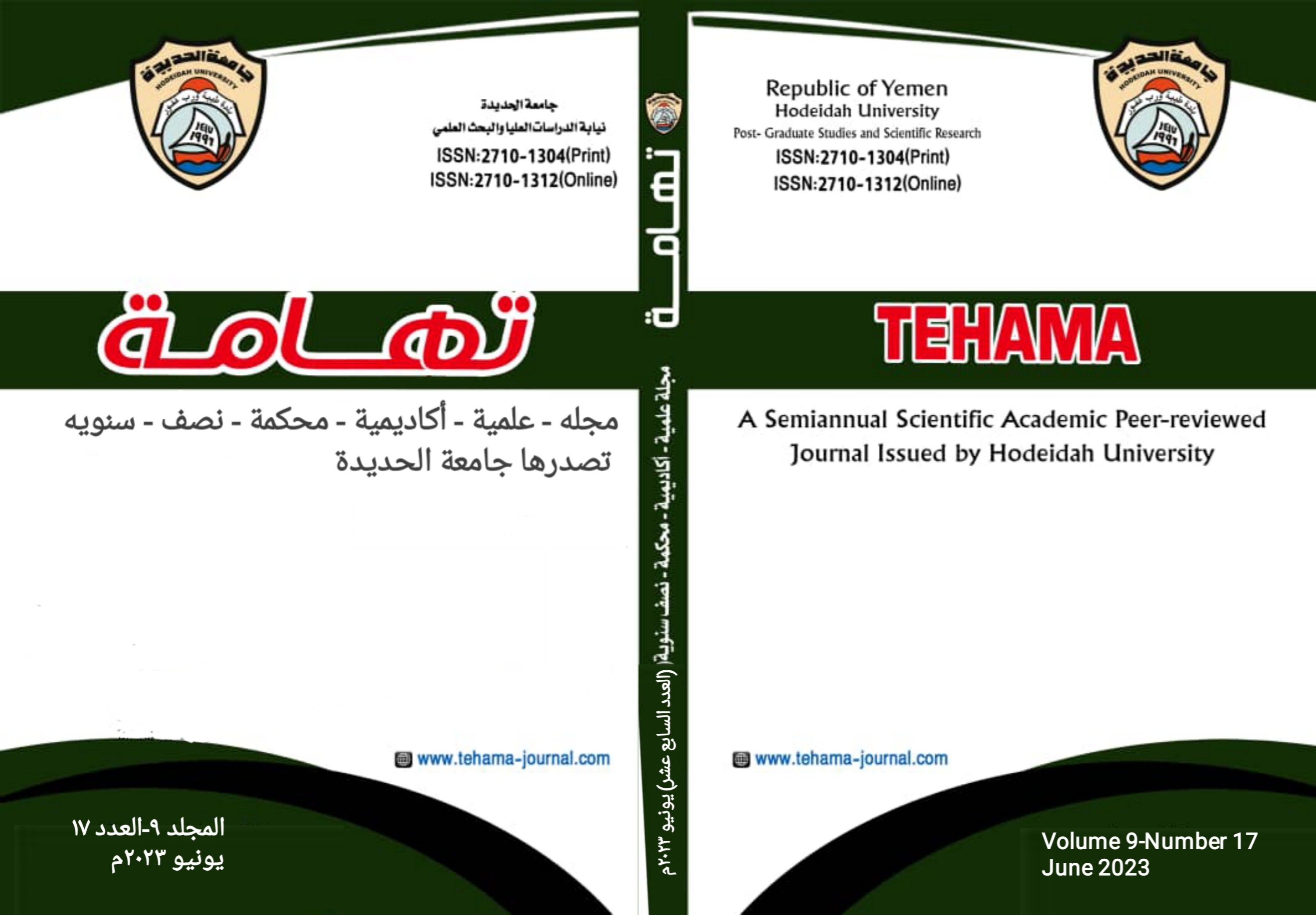الجرائم الدستورية في دستور الجمهورية اليمنية
DOI:
https://doi.org/10.59846/ojstehama.v9i17.235Abstract
The in-force Constitution of Yemen identifies the constitutional crimes mentioning the three of them: the high treachery, the violation of the constitution and the violation of the sovereignty and independence of the Republic. Each of these crimes includes a number of acts and conducts that might be committed by those who hold the high offices of the executive power, such acts and conducts could be the reason for accusing them of being ultimate treacherous or violators of the constitution or violators of the sovereignty and independence of the country. The law provides for some other kinds of acts that might be committed by occupiers of the high executive offices – from the level of Prime Minister to vice ministers- besides the three said crimes identified in the Constitution.
The research in hand addresses in details the procedures stipulated by the law to be followed in relation to accusing and prosecuting the occupiers of high executive power offices in case they commit any of the crimes specified in the Constitution and law, and the guarantees granted to the perpetrators through the pertinent proceedings -during the phases of filing the charges and bringing perpetrators before courts.
This research ,through its narration, lists several obvious acts and conducts that were used to be perpetrated by the occupiers of the high offices of the executive power from the early nineties of the past century till the beginning of the third decade of this century, which are understood to be within the concept of high treachery, the violation of the Constitution and the violation of the sovereignty and independence of the country. However, no charges were raised against the perpetrators of such by the House of Representatives, in its capacity as the competent authority concerned with initiating the procedures of filing the charges and beginning the proceedings in relation to such crimes. The research contains also listing the reasons the researcher believes to be behind the failure of the House of Representatives in assuming their constitutional and legal duties in respect of safeguarding the Constitution and the high interest of the country.
The research in hand reveals what the factual exercise is rich in of crimes committed by officials occupied the highest executive posts in the period that followed the application of the Constitution of Yemen whether to be crimes of high treason, constitutional breaches, or violation of the sovereignty and the independence of the State, and surprisingly that was not enough to start a serious discussion officially within the House of Representatives on the charges against occupants of high executive posts in Yemen, the House of Representative rather has legitimized such crimes.
The conclusion of this research comes up with some results and recommendations. The results therein set out the deficiencies that led to not to rise any charges of committing constitutional crimes against occupants of high executive posts by the House of Representatives in its capacity as the competent body under provisions of the Constitution and the Law to charge occupants of high executive posts with committing any of the crimes stated in the Constitution and Law, whereas the recommendations contain suggestions for remedying the current or future statues.
Downloads
Published
How to Cite
Issue
Section
License
Copyright (c) 2023 عبدالرحمن المختار

This work is licensed under a Creative Commons Attribution 4.0 International License.





